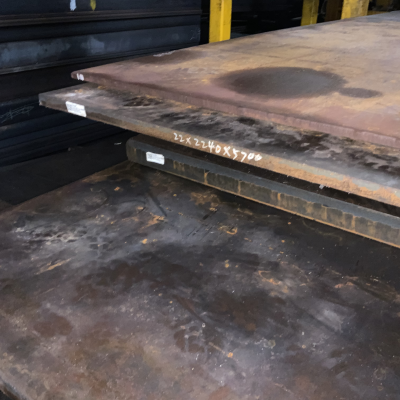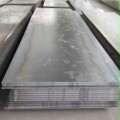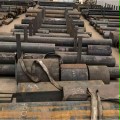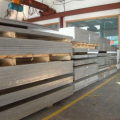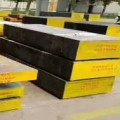Detailed Introduction
Model :1.2738/40CrMnNiMo8-6-4/ P20+Ni
Application : plastic mould steel
Content :
Equivalent Steel with exact or nearest equivalents
|
Grade |
C |
Si |
Mn |
P |
S |
Cr |
Mo |
Ni |
|
1.2738 |
0.35-0.45 |
0.20-0.40 |
1.30-1.60 |
≤0.030 |
≤0.030 |
1.80-2.10 |
0.15-0.25 |
0.90-1.20 |
|
Grade |
C |
Si |
Mn |
P |
S |
Cr |
Mo |
Ni |
|
40CrMnNiMo8-6-4 |
0.35-0.45 |
0.20-0.40 |
1.30-1.60 |
≤0.030 |
≤0.030 |
1.80-2.10 |
0.15-0.25 |
0.90-1.20 |
1.2738 Profile :
1.2738 Die steel is a die steel material produced in accordance with German DIN standard. Among similar grades of steel, it has relatively superior mechanical properties and good machine-ability. It is mainly used for the processing and production of hot working molds, among which plastic molds are the most widely used. In addition, the special pre-hardening treatment of the steel makes it have a good hardness when leaving the factory, which can reduce the heat treatment link in the normal mold processing and production, and improve the economic benefit.
1.2738 Die steel is pre-hardened plastic die steel :
1.2738 steel is vacuum melted Cr-Ni-Mo alloy steel with advanced die steel refining technology. The steel has excellent polishing and photolithographic properties. Excellent machined-ability; Good wear resistance; Large die uniform hardness, compact structure; No risk of quenching cracking and heat treatment deformation, no heat treatment, shorten the mold production cycle; Good surface nitriding performance; The surface can be hardened by flame to improve the surface hardness and wear resistance of the die. The die must be softened and annealed fully before quenching. After quenching, it should be tempered in time and heated slowly.
The fine discharge machining after electromachining should be carried out with low current and high frequency to avoid damage to the mould. After discharge, the die surface should be ground to remove the "white layer of electric spark" and tempered again at 500℃ to remove stress.
When grinding the tempered die, in order to prevent grinding cracks and surface softening, attention should be paid to: sufficient cooling; Grinding pressure is appropriate; The processing technology is reasonable.
The steel pre-hardened steel has good polishing performance and is usually polished with alumina or gypsum. First of all, rough polishing, and then with more and more fine abrasive polishing, each change of abrasive polishing direction to change, the final polishing time should not be too long, otherwise it will affect the surface roughness of the mold.
Nitriding can increase the surface hardness of die, improve wear resistance and corrosion resistance. Although the steel has been pre-hardened, it can be further hardened by heat treatment.
Chinese GB standard grade 3cr2NiMo, German DIN standard grade 40CrMnNiMO864, German DIN standard material number 1.2738, American AISI standard grade P20 +Ni, Japanese JIS standard grade PDS5S, Sweden UDDEHOLM IMPAX HI HARD, Sweden one win 100 (ASSAB) standard number 718 (HH)
The Major Performance:
1. Uniform hardness of material
2. Excellent polishing performance
3. Good machining performance
4. Pre-hard plastic die steel
5. Nitriding can be applied
6. Suitable surface treatment, such as Cr plating
Physical properties of1.2738 (Sample hardness 340HBW, at room temperature and high temperature)
1) Temperature 20°C/200°C/400°C, density 7.8g /cm/7.75g/cm/ 7.7 g/cm.
2) Temperature 20~200°C/20 ~400°C, linear expansion coefficient: 12.6 ×10K/13.5×10K.
3) temperature is 20 ° C / 200 ° C / 400 ° C, thermal conductivity, 29.0 W (m, K), 29.5 W/(m, K) / 31.0 w. (m. K)
4) temperature is 20 ° C / 200 ° C / 400 ° C, modulus of elasticity: 205000 mpa / 200000 mpa / 185000 mpa
Mechanical properties of1.2738 (Sample hardness 340HBW)
1) Temperature 20°C/200°C/400°C, tensile strength 1100MPa/ 1050MP8/850mpa.
2) Temperature 20°C/200°C/400°C, conditional yield strength 980MPa/925MPa/770MPa.
3) Temperature 20°C/200°C/400°C, section shrinkage rate 49%/51%/52%
4) Temperature 20°C/200°C/400°C, elongation of 13%/14%/16%
5) Temperature 20°C/200°C/400°C, impact toughness (≥) 20J/cm/32J/cm/42J/cm
Process specification :
Softening annealing
The annealing temperature is 710~740°C, and the holding time is determined by 1h per 25mm wall thickness. Cool with furnace after heat preservation.
Quenching tempering
The preheating temperature is 500~600°C, and the quenching temperature is 840~880°C, and the temperature is kept for 30min (the mold must be quenched in a protective atmosphere to avoid oxidation and decarbonization). Cool oil, cool to 50-70 °C, temper immediately.
Tempering insulation time is determined by the workpiece thickness every 25mm 1h, at least 2h. Tempering temperature 180°C/200°C/
300°C/400°C/500°C/600°C, hardness 52HRC/51HRC/48 HRC/46HRC/42HRC/34HRC.
Induction hardening
The steel can be hardened to 50HRC by flame or induction hardening and then air-cooled. Small molds can use general quenched medium, after hardening should be immediately tempered, tempering temperature 180~200°C.
Nitriding temperature × nitriding time: 525°C ×20h, thickness of nitriding layer 0.30mm; 525°C x30h, nitride layer thickness 0.35mm; At 525°C ×50h, the thickness of nitride layer was 0.50mm.
Soft nitriding
Soft nitriding was maintained for 2h at 570°C, the surface hardness of the mold was about 700HV, and the nitriding depth was about 0.1mm.
The Practical Application:
1.- Leather pattern, pear pattern, imitation stone pattern etching mold.
2.- Transparent plastic such as writing case, daily necessities container mold with high gloss requirements.
3 - Especially suitable for hard adhesive (PS) and non-broken adhesive (ABS) parts.
4.- Large molds for bumper, interior decoration, refrigerator, air conditioner and other products with high production requirements.
Solar Special Steel International Limited
Contact Person :Wendy
Telephone:+86 18688633122 whatsapp&wechat
Skype: .cid.8920082fecfa0b5c
Email:ss@solarsteel.cn


